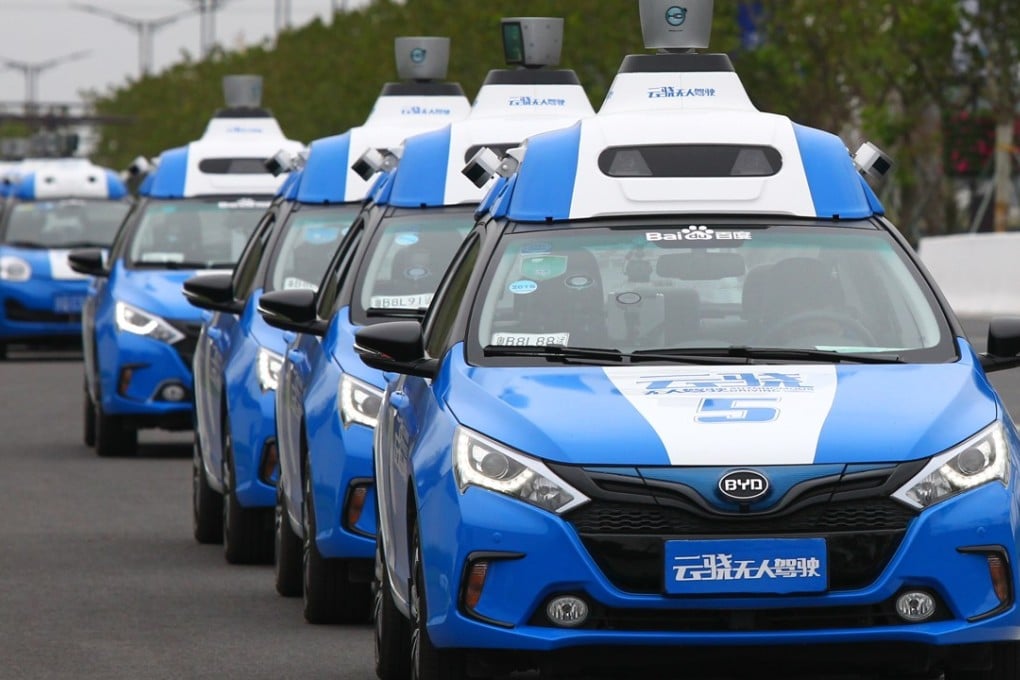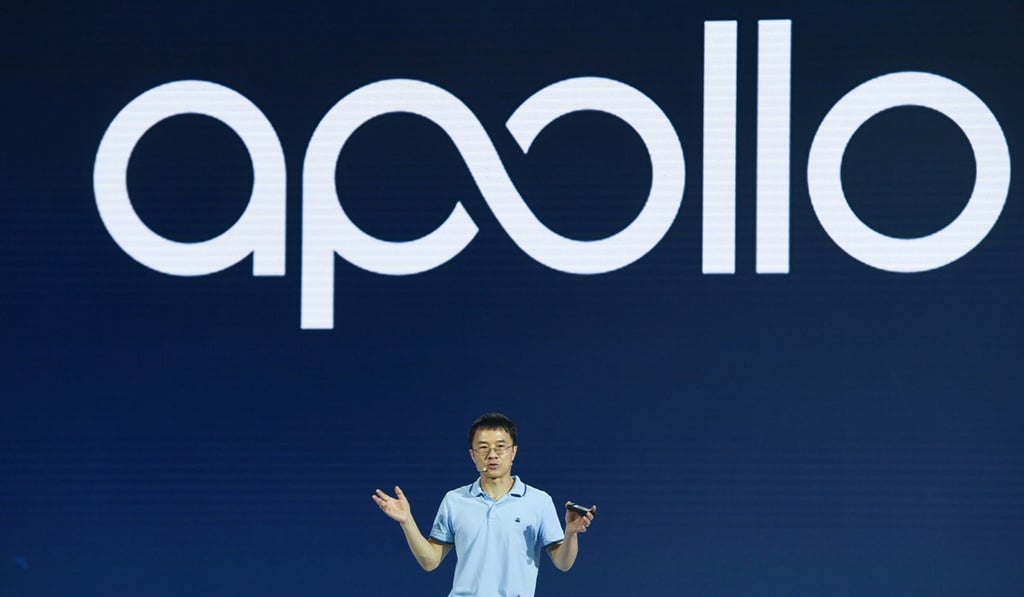China’s Baidu revs up driverless car race with launch of US$1.5bn autonomous driving fund
The creation of Baidu’s ‘Apollo Fund’ coincides with the release of Apollo 1.5, the latest version of its open-source autonomous vehicle software

Baidu, the operator of China’s largest online search engine, has launched a 10 billion yuan (US$1.5 billion) autonomous driving fund – its latest effort at stealing a march on its rivals in the development of artificial intelligence-powered vehicles.
The “Apollo Fund”, created jointly by Baidu and Yangtze River Industry Fund, will invest that cash over the next three years into more than 100 autonomous driving projects, said the Nasdaq-listed Baidu.
It also announced the release of Apollo 1.5, the latest iteration of the company’s Apollo open-source autonomous vehicle software.

Baidu has vowed to release a driverless car by 2018, with mass production to begin by 2021 and has already enlisted 70 global and Chinese partners from car makers and ride-sharing companies, as partners for its Apollo project.
According to a statement from the firm, newly joined members include Hyundai Motor, ROS, ESD electronics, Neousys Technology, and autonomous driving start-ups such as Momenta and iDriver+ Technologies.